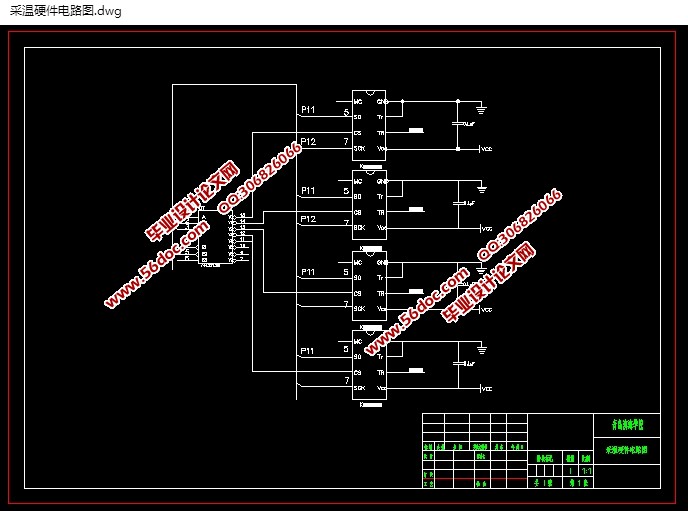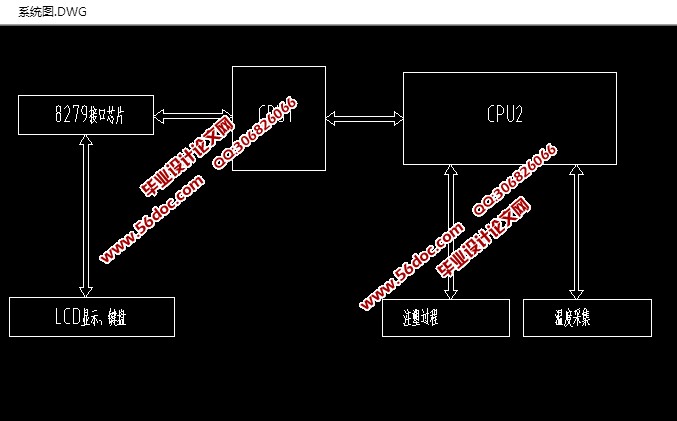基于单片机的注塑机控制系统的设计(含电路图,原理图)

1.无需注册登录,支付后按照提示操作即可获取该资料.
2.资料以网页介绍的为准,下载后不会有水印.资料仅供学习参考之用.
密 惠 保
基于单片机的注塑机控制系统的设计(含电路图,原理图)(论文7400字,CAD图纸7张)
The design of injection molding machine control system based on single chip microcomputer
摘要
电气工程是电气工业的产物,本课题研究了单片机控制系统在注塑机控制系统中的应用。在全球经济发展的大环境下,中国各个行业被其他国家的先进技术影响的同时,越来越多的外国企业和品牌传播到中国已经成为现实。基于单片机的注塑机控制系统的发展与人类社会的进步和科学技术的水平密切相关,所以本次的设计对于注塑机控制系统的研究和发展来说具有现实意义。
本设计以单片机为核心设计了系统结构图、加热系统、程序指令、系统控制流程图等,在保留了原始注塑机的基本功能的同时又增加了一系列的实用功能并简化其电路结构,其将以控制方便,灵活,只要改变输入单片机的控制程序,便可控制注塑机的各种动作,从而使得注塑机的操纵和工作更加人性化,更加易于控制。因此,本次的基于单片机的注塑机控制系统的设计在某种程度上面来说具有重大的经济和社会意义。
关键词:单片机,注塑机,控制系统,意义
Abstract
Pneumatic manipulator is a automated devices that can mimic the human hand and arm movements to do something,aslo can according to a fixed procedure to moving objects or control tools. It can replace the heavy labor in order to achieve the production mechanization and automation, and can work in environments to protect the personal safety, Therefore widely used in machine building, metallurgy, electronics, light industry and atomic energy sectors.
[资料来源:http://www.THINK58.com]
This article is mainly of the pneumatic manipulator the overall design, and pneumatic design. This mechanism of manipulator includes cylinders and claws and connectors parts, it can move according to the due track on the movement of grabbing, carrying and unloading. The pneumatic part of the design is primarily to choose the right valves and design a reasonable pneumatic control loop, by controlling and regulating pressure, flow and direction of the compressed air to make it get the necessary strength, speed and changed the direction of movement in the prescribed procedure work.
Keywords:Machine product; roller ; Control System; Meaningful



目 录
摘要 I
Abstract II
1 绪论 1
1.1 本课题研究的目的、意义 1
1.2 国内外发展现状 3
1.3 应用单片机控制系统的优点 5 [来源:http://www.think58.com]
1.4 单片机的应用场合 6
2 系统总体设计 7
2.1 注塑机控制系统概述 8
2.2 注塑机的工作原理 9
2.3 系统原理框图的确定 10
3 系统硬件的设计 10
3.1 单片机系统 12
3.2 键盘电路 13
3.3 辅助电加热电路 14
3.4 实时时钟电路 15
4 系统软件设计 16
4.1 软件组成 18
4.2 顺序控制流程图的确定 18
4.3 温度采集模块流程图的确定 19
结 论 22
致 谢 23
参考文献 24
附 录 25
